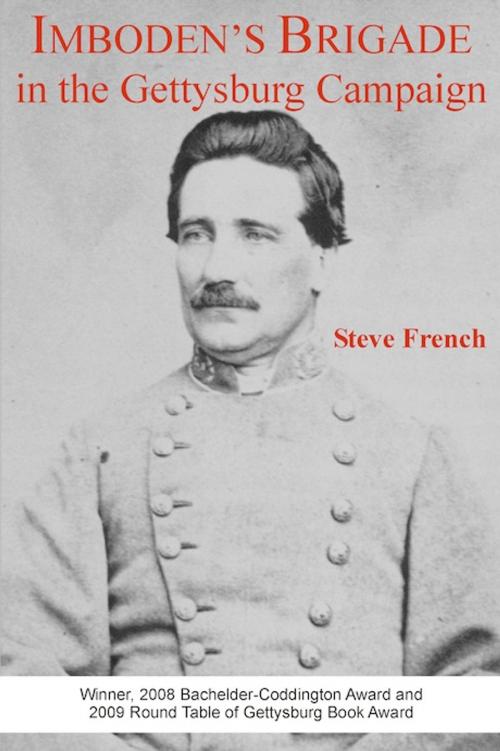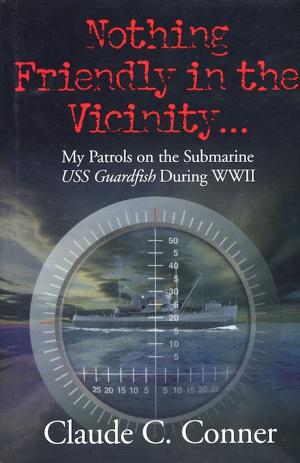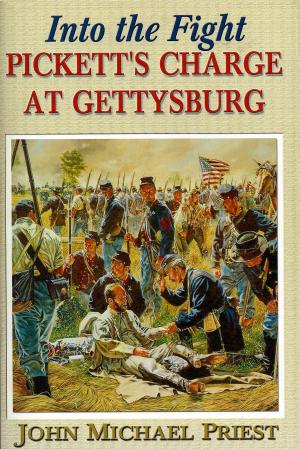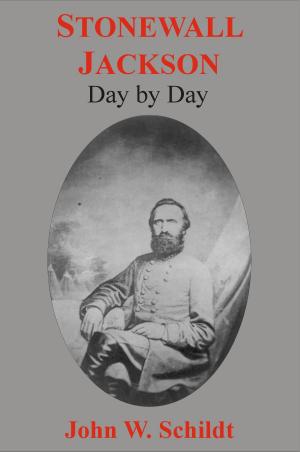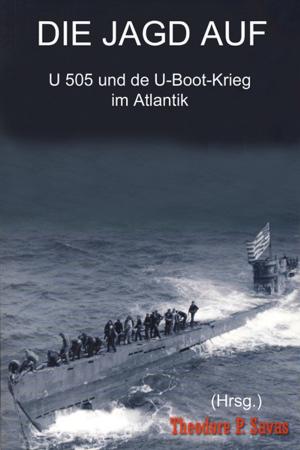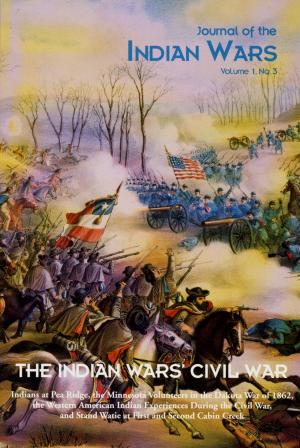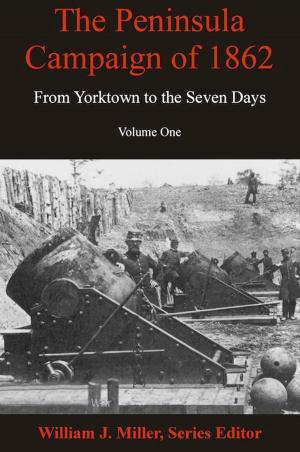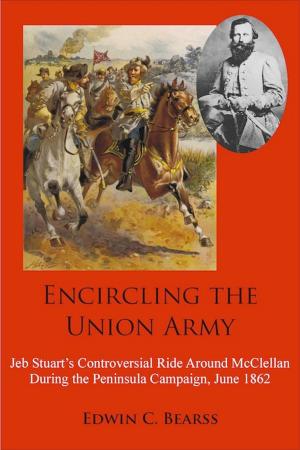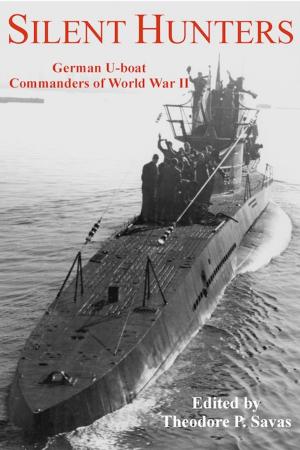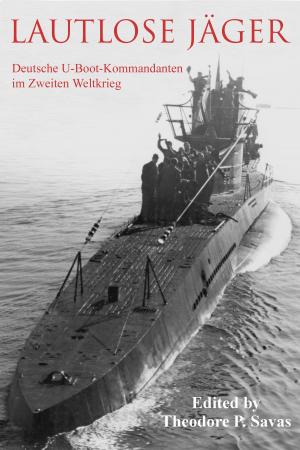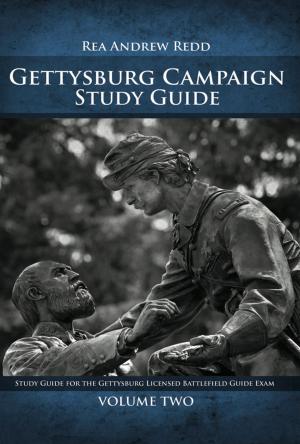Imboden's Brigade in the Gettysburg Campaign
Nonfiction, History, Americas, United States, Civil War Period (1850-1877)| Author: | Steve French | ISBN: | 9781940669021 |
| Publisher: | Savas Publishing | Publication: | September 25, 2013 |
| Imprint: | Savas Publishing | Language: | English |
| Author: | Steve French |
| ISBN: | 9781940669021 |
| Publisher: | Savas Publishing |
| Publication: | September 25, 2013 |
| Imprint: | Savas Publishing |
| Language: | English |
John Daniel Imboden carved out one of the most unique and fascinating careers of the Civil War. In 1859, the lawyer and politician was commissioned a captain in the Staunton (Va.) Artillery. When war broke out in 1861, he served with his battery at Harpers Ferry and First Manassas. In 1862, Imboden raised the 1st Virginia Partisan Rangers and fought in Stonewall Jackson’s famed Shenandoah Valley Campaign. A promotion to brigadier general followed in early 1863, as did daring cavalry raids. Imboden served until the end of the war, but it was his service during the Gettysburg Campaign for which he is best remembered. Steve French’s Imboden’s Brigade in the Gettysburg Campaign, the winner of the 2008 Bachelder-Coddington Award, the Gettysburg Civil War Round Table Book Award, and the Jefferson Davis Historical Gold Medal, is the first full-length book to tell the story of the general’s “finest hour.”
The brigadier and his 1400-man Northwestern Virginia brigade, which included artillery, infantry and cavalry, spent most of the early days of the campaign raiding along the B&O Railroad in western Virginia, before guarding ammunition and supply trains in the rear of Lee’s Army of Northern Virginia during the three-day (July 1-3, 1863) Battle of Gettysburg. The sharp Confederate defeat forced a hasty retreat , and Lee put Imboden in charge of escorting the wagons filled with thousands of wounded safely back to Virginia. After a harrowing journey beset by heavy rain and attacks by roving bands of Union cavalry, Imboden’s seventeen-mile-long “wagon train of misery” finally reached Williamsport, Maryland, where the flooding Potomac River trapped them.
On July 5-6, Imboden established a strong defensive position on a ridge outside of town and cobbled together a force of soldiers that included his own brigade, various Confederate units on their way to join the army, 600 teamsters, many walking wounded and over twenty cannons. Demonstrating sound judgment and outstanding bravery, this hastily organized force beat back attacks by two Union cavalry divisions in the “Wagoners Fight.” Imboden’s efforts saved the wagon train and thousands of men who would otherwise have been captured or killed. General Lee praised Imboden and reported that he “gallantly repulsed” the enemy troopers.
French’s Imboden’s Brigade in the Gettysburg Campaign is based on scores of archival sources, newspaper accounts, and an excellent understanding of the terrain. The dozens of maps, photos, and illustrations, coupled with French’s smooth prose, tells in riveting detail the full story of the often forgotten but absolutely critical role Imboden and his men played during the final fateful days of the Gettysburg Campaign.
John Daniel Imboden carved out one of the most unique and fascinating careers of the Civil War. In 1859, the lawyer and politician was commissioned a captain in the Staunton (Va.) Artillery. When war broke out in 1861, he served with his battery at Harpers Ferry and First Manassas. In 1862, Imboden raised the 1st Virginia Partisan Rangers and fought in Stonewall Jackson’s famed Shenandoah Valley Campaign. A promotion to brigadier general followed in early 1863, as did daring cavalry raids. Imboden served until the end of the war, but it was his service during the Gettysburg Campaign for which he is best remembered. Steve French’s Imboden’s Brigade in the Gettysburg Campaign, the winner of the 2008 Bachelder-Coddington Award, the Gettysburg Civil War Round Table Book Award, and the Jefferson Davis Historical Gold Medal, is the first full-length book to tell the story of the general’s “finest hour.”
The brigadier and his 1400-man Northwestern Virginia brigade, which included artillery, infantry and cavalry, spent most of the early days of the campaign raiding along the B&O Railroad in western Virginia, before guarding ammunition and supply trains in the rear of Lee’s Army of Northern Virginia during the three-day (July 1-3, 1863) Battle of Gettysburg. The sharp Confederate defeat forced a hasty retreat , and Lee put Imboden in charge of escorting the wagons filled with thousands of wounded safely back to Virginia. After a harrowing journey beset by heavy rain and attacks by roving bands of Union cavalry, Imboden’s seventeen-mile-long “wagon train of misery” finally reached Williamsport, Maryland, where the flooding Potomac River trapped them.
On July 5-6, Imboden established a strong defensive position on a ridge outside of town and cobbled together a force of soldiers that included his own brigade, various Confederate units on their way to join the army, 600 teamsters, many walking wounded and over twenty cannons. Demonstrating sound judgment and outstanding bravery, this hastily organized force beat back attacks by two Union cavalry divisions in the “Wagoners Fight.” Imboden’s efforts saved the wagon train and thousands of men who would otherwise have been captured or killed. General Lee praised Imboden and reported that he “gallantly repulsed” the enemy troopers.
French’s Imboden’s Brigade in the Gettysburg Campaign is based on scores of archival sources, newspaper accounts, and an excellent understanding of the terrain. The dozens of maps, photos, and illustrations, coupled with French’s smooth prose, tells in riveting detail the full story of the often forgotten but absolutely critical role Imboden and his men played during the final fateful days of the Gettysburg Campaign.
